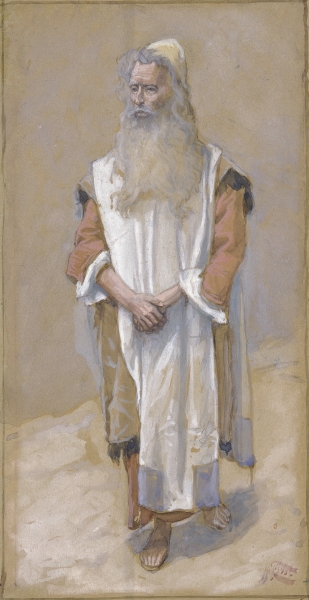Deuteronomy 30: 1-10 Returning to the LORD
1 When all these things have happened to you, the blessings and the curses that I have set before you, if you call them to mind among all the nations where the LORD your God has driven you, 2 and return to the LORD your God, and you and your children obey him with all your heart and with all your soul, just as I am commanding you today, 3 then the LORD your God will restore your fortunes and have compassion on you, gathering you again from all the peoples among whom the LORD your God has scattered you. 4 Even if you are exiled to the ends of the world, from there the LORD your God will gather you, and from there he will bring you back. 5 The LORD your God will bring you into the land that your ancestors possessed, and you will possess it; he will make you more prosperous and numerous than your ancestors.
6 Moreover, the LORD your God will circumcise your heart and the heart of your descendants, so that you will love the LORD your God with all your heart and with all your soul, in order that you may live. 7 The LORD your God will put all these curses on your enemies and on the adversaries who took advantage of you. 8 Then you shall again obey the LORD, observing all his commandments that I am commanding you today, 9 and the LORD your God will make you abundantly prosperous in all your undertakings, in the fruit of your body, in the fruit of your livestock, and in the fruit of your soil. For the LORD will again take delight in prospering you, just as he delighted in prospering your ancestors, 10 when you obey the LORD your God by observing his commandments and decrees that are written in this book of the law, because you turn to the LORD your God with all your heart and with all your soul.
Deuteronomy 30 is one of those passages whose images will have a ripple effect in both the prophets, particularly Jeremiah, and later in the words of the apostle Paul. Whenever these words are spoken, they speak to the context of the Babylonian exile where the land, Judean king, and the temple which formed the central parts of the identity of the Jewish people prior to the exile are all lost. It is in the midst of this experience of desolation that the prophetic hope arises, but it is always a hope that is not easily won. It only comes after all the curses have been exhausted, or in the experience of the exile once the nation has been conquered multiple times and not only with the elite being carried off into exile but rather after continued rebellion and failed cheap solutions like those presented by false prophets like Hananiah in Jeremiah 28 which promised a quick and easy end to judgment. There is hope in the midst of what may seem like hopelessness. In exile there is the promise of return and the primary actor is the LORD.
The prophets will spend a lot of ink talking about the return from exile. Isaiah 40-55, Jeremiah 30-33, Ezekiel 36-37 and several of the minor prophets all address this. The poetic and prophetic hope emerges out of this place of desolation and destruction. The promise is again the land and prosperity and this becomes a central image for the people. Their lives and stories are linked to the land, but their prosperity in the land is linked to their ability to live out of the covenant. We are linked back to Deuteronomy 6:5 by the echo of loving the LORD with all of their heart and soul. If the people return to the LORD, then the words of Isaiah echo the sentiment of this passage:
Do not fear, I am with you, I will bring your offspring from the east, and from the west I will gather you; I will say to the north, “Give them up,” and to the south, “Do not withhold; bring my sons from far away and my daughters from the ends of the earth—everyone who is called by my name, whom I created for my glory, whom I formed and made.” Isaiah 43:5-7
The image of circumcision is now used metaphorically in relationship to the heart. Just as the physical act of circumcision became a mark of the covenant for the Jewish people, now the LORD circumcises the heart of the renewed people. In Deuteronomy 10: 16 the people are commanded to circumcise the foreskin of their hearts so that they would no longer be stubborn and would be receptive to the commandments of the LORD. Now in this period of renewal God is the primary actor and the one enabling the people to love the LORD with their heart and soul. In Jeremiah 4:4 this image re-appears in language similar to Deuteronomy 10, in the sense of a warning to turn towards the LORD prior to the experience of exile:
Circumcise yourselves to the LORD, remove the foreskin of your hearts, O people of Judah and inhabitants of Jerusalem, or else my wrath will go out like fire, and burn with no one to quench it, because of the evil of your doings. Jeremiah 4:4
But for the apostle Paul, who has to justify his ministry among the Gentiles before those who expect Gentiles to undergo physical circumcision, he is able to use these passages to reflect his ministry in a different light:
For a person is not a Jew who is one outwardly, nor is true circumcision something external and physical. Rather, a person is a Jew who is one inwardly, and real circumcision is a matter of heart—it is spiritual and not literal. Such a person receive praise not from others but from God. Romans 2: 28f.
The condition of exile, much like the captivity in Egypt, creates the space where the covenant can begin again and God hears the cries of the oppressed people. Just as in the exodus from Egypt, in the return from exile the primary actor will be God. Yet, in this condition where God has acted on behalf of the people, the people still have the obligation to live in obedience to the commands and decrees and that begins with loving and turning to the LORD their God with all their heart and soul.
Deuteronomy 30: 11-20 Obedience is Possible
11 Surely, this commandment that I am commanding you today is not too hard for you, nor is it too far away. 12 It is not in heaven, that you should say, “Who will go up to heaven for us, and get it for us so that we may hear it and observe it?” 13 Neither is it beyond the sea, that you should say, “Who will cross to the other side of the sea for us, and get it for us so that we may hear it and observe it?” 14 No, the word is very near to you; it is in your mouth and in your heart for you to observe.
15 See, I have set before you today life and prosperity, death and adversity. 16 If you obey the commandments of the LORD your God that I am commanding you today, by loving the LORD your God, walking in his ways, and observing his commandments, decrees, and ordinances, then you shall live and become numerous, and the LORD your God will bless you in the land that you are entering to possess. 17 But if your heart turns away and you do not hear, but are led astray to bow down to other gods and serve them, 18 I declare to you today that you shall perish; you shall not live long in the land that you are crossing the Jordan to enter and possess. 19 I call heaven and earth to witness against you today that I have set before you life and death, blessings and curses. Choose life so that you and your descendants may live, 20 loving the LORD your God, obeying him, and holding fast to him; for that means life to you and length of days, so that you may live in the land that the LORD swore to give to your ancestors, to Abraham, to Isaac, and to Jacob.
The people to this point in the story have not demonstrated that they have a mind to understand, or eyes to see, or ears to hear as Deuteronomy states in Deuteronomy 29: 4, yet for Deuteronomy obedience is not only possible, it is easily within the people’s reach. The Jewish people were not to view the law as a heavy burden but rather as Psalm 1 can state that for the faithful the law of the LORD is their delight. To live in accordance with commandments, decrees and ordinances is to choose life and to fail to do so is to choose death for the people. The earth, who we have seen at previous points, bears some of the consequences of the disobedience of the people of God is called to witness against them. The people are urged once more to choose life, just as at the end of the book of Joshua they will be charged to choose to serve the LORD (Joshua 24).
The apostle Paul in his letter to the Romans demonstrates how for the followers of Jesus the focus of this obedience changes. In Romans 10: 5-8 now Christ takes the place of this word that is near you and on your hearts.
Moses writes concerning the righteousness that comes from the law, that “the person who does these things will live by them.” But the righteousness that comes from faith says, “Do not say in your heart, ‘Who will ascend into heaven?'” (that is, to bring Christ down) “or ‘Who will descend into the abyss?'” (that is, to bring Christ up from the dead). But what does it say? “The word is near you, on your lips and in your heart” (that is, the word of faith that we proclaim); Romans 10: 5-8
Much as John’s Gospel can refer to Jesus as the Word of God (John 1) or Matthew’s Gospel can refer as Jesus as the fulfillment of the Law (Matthew 5: 17) it shows how this concept becomes completely transformed in a Christian worldview. Even though Jesus will echo the greatest commandment being Deuteronomy 6: 4-5 which comes down to loving the LORD with all the heart. These texts become transformed with now Jesus occupying the place of the law, and the righteousness of faith takes the place of the righteousness of the law. It is not surprising that Paul was frequently in trouble with other Jewish people over a transformation that affects such a central thing as the law, and that is probably why he spends much of Romans (in addition to Galatians) trying to re-interpret the scriptures in light of his experience of the risen Christ.














